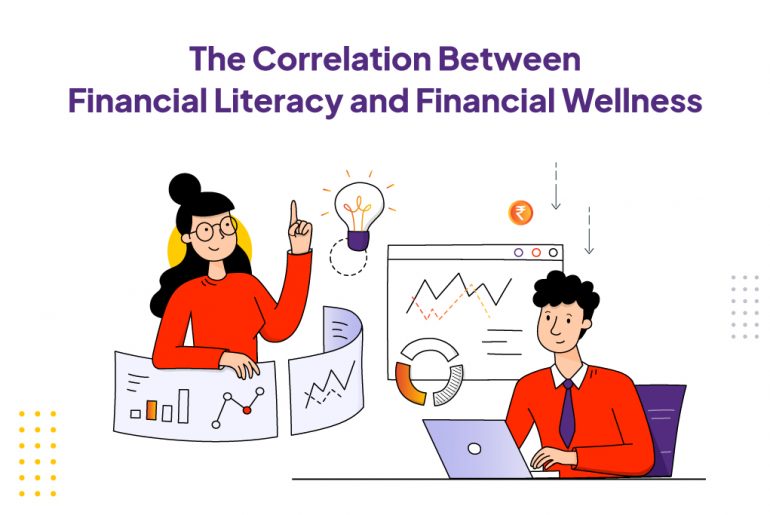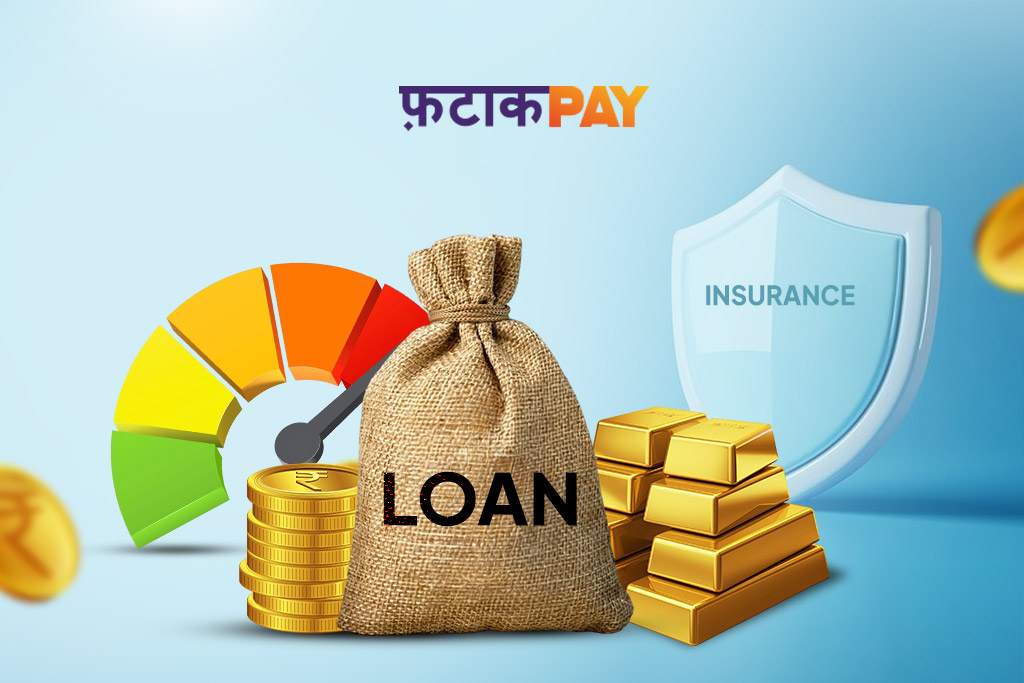A credit score plays a crucial role in determining your creditworthiness. Whenever you Apply for a personal loan online, banks or Non-banking financial institutions will evaluate your credit score while deciding whether to lend you money or not. The credit score also influences the loan amount to be sanctioned and the interest rate to be paid by you as a borrower. Additionally, if you have a lower credit score, the lender might deny your loan application.
When you apply for a loan or a credit card from a bank or NBFCs, a higher credit score may enable you to get additional benefits, such as a higher loan amount, longer repayment period and lower interest rate.
What is a credit score?
A credit score is a three-digit number which usually ranges from 300 to 900 and it estimates the creditworthiness of the borrower. In other words,
It helps in assessing your ability to repay the amount you have borrowed.
The applicant with the highest score is considered to be reliable. Always strive to be at the top of the range as it is pretty advantageous when applying for a loan or credit card. In contrast, if your score is low or you fall into a lower range, this shows that you are an irresponsible loan applicant and have not paid your loans or other dues on time.
A higher credit score gives you access to more credit products at lower interest rates. However, when assessing applicants for loans and credit cards, creditors may also set their standards for what constitutes good or bad credit scores.
Credit Bureaus in India
A credit bureau is nothing but a credit score agency. There are 4 credit bureaus in India which are licensed by the Reserve Bank of India(RBI). These credit bureaus calculate your credit score based on the credit information provided by banks, credit card companies, and other money-lending organisations periodically.
- TransUnion CIBIL (Credit Information Bureau India Limited)
- Experian
- CRIF High Mark
- Equifax
It is important to note that there is the distinct credit score ranges for each credit bureau. Your credit score can range from 300 to 900, with 300 being the lowest and 900 being the highest. A higher score reduces the risk that lenders may reject your loan application.
What are Credit Score Ranges?
Even though each bureau has different scoring models, a score between 700 and 750 is usually considered as good, whereas one below 650 is either fair or bad.
- 300-549: This is the range with the lowest CIBIL score. It indicates that you have fallen behind on your loan payments or credit card bills. Lenders will view you as a high-risk borrower who is likely to default on their loans.
- 550-649: Although this CIBIL score range is regarded as fair, it indicates that you have had difficulty in making on-time payments. Your loans might not be approved by many lenders, and those that are might have higher interest rates and down payments.
- 650-749: This CIBIL score indicates that you have good credit records. You have a high chance of getting a loan approval or a credit card. However, you may not get the best interest while applying for a loan.
- 750-900: A CIBIL score over 750 is regarded as excellent and indicates that you have an impressive payment history and have consistently paid your dues on time. Lenders will grant you loans easily and at lower interest rates because you pose the lowest risk of becoming a defaulter.
What factors affect your Credit Scores?
- Payment history: Your payment history is used to calculate 35% of your credit score. It shows how consistently you’ve paid your bills, how many times you’ve missed payments, and how many days past the due date you’ve paid them. Therefore if you have a high percentage of on-time payments, you can get a good score. Make sure you never skip a payment because doing so might harm your credit score.
- How much you owe: How much you owe on loans and credit cards accounts for around 30% of your credit score. Your credit score would suffer if you have a high balance and have used up all of your credit card’s available credit. While low balances and on-time payments would boost the score.
- Credit history length: 15% of your credit score is determined by the length of your credit history. You would certainly have a higher credit score if you have a long history of on-time payments.
- Credit mix: 10% of your credit score that is based on your credit mix(types of loans). Having a mix of various loans like instalment loans, home loans, and credit cards will increase your credit score.
- Credit activity: Your recent credit activities will determine the remaining 10% of your credit score. Credit activities include all the information relating to opening or applying for various accounts, repayment history, types of loans you have applied for and the usage of the credit limit.
How to improve your Credit Score?
- Make payments on time: Missed payments can lower your credit score. Avoid them at all costs, and if at all possible, try to pay more than the minimum each month.
- Keep credit utilization low: You shouldn’t borrow more just because you can, though. Avoid carrying a balance that is greater than 30% of your total credit limit as a general rule.
- Get a secured credit card: Unlike most, there are specific credit cards that are intended to help you build your credit without any risk to your lender. You must pay your lender cash equal to the total amount you are going to borrow and you must make on-time, full payments on all amounts borrowed each month.
- Do not close old accounts: Avoid closing old accounts till you reach an excellent credit score. As the credit score depends on credit history length, closing those old and unused credit accounts could potentially lower your credit scores.
Always aim to have an excellent credit score. At Fatakpay, we provide virtual credit facilities at a 0% interest rate to users without a credit history. When you make payments on time, this helps you build and increase your credit score. Thus, Fatakpay aids every individual by paving the way for easier access to better credit from the nation’s major financial institutions. Make use of this benefit and build your credit score.
In the end, lenders may set their standards for application approval, including credit ranges. However, you can make reasonable assumptions about your financial situation if you know where you fall on a credit score scale.
| Instant Loans by Amount | |||
|---|---|---|---|
| ₹1500 Instant Loan | ₹2500 Instant Loan | ₹5000 Instant Loan | ₹10000 Instant Loan |
| ₹12500 Instant Loan | ₹15000 Instant Loan | ₹17500 Instant Loan | ₹20000 Instant Loan |






